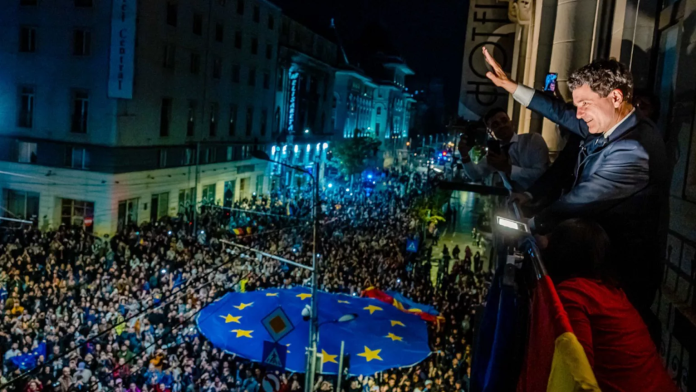In a dramatic second-round vote, Bucharest’s liberal mayor Nicușor Dan secured Romania’s presidency with 53.6% of the vote, defeating his rival George Simion (46.4%) in an election marked by high turnout.
The result, confirmed after Simion initially rejected exit polls and declared himself the winner, has been hailed as a victory for pro-European values amid rising nationalist sentiment in Eastern Europe.
Dan, a 55-year-old mathematician and anti-corruption advocate, entered the runoff as an underdog, having secured just 21% in the first round compared to Simion’s 41%. His comeback was fueled by record-breaking turnout (64.72%), particularly among urban voters and younger demographics, who rallied behind his promises of EU integration, judicial reform, and support for Ukraine.
Meanwhile, Simion, leader of the Alliance for the Union of Romanians (AUR), campaigned on a Trump-inspired “Make Romania Great Again” platform.
The election’s legitimacy had already been under scrutiny. A previous November 2024 vote was annulled after Romania’s Constitutional Court cited alleged Russian-linked interference, including TikTok algorithm manipulation and funding for candidate Călin Georgescu.
The election was further overshadowed by claims from Telegram founder Pavel Durov, who accused an unnamed Western European government of pressuring him to censor “conservative voices” in Romania ahead of the vote.
Telegram will not restrict the freedoms of Romanian users and block their political channels. You cannot “defend democracy” by destroying democracy. You cannot “fight election interference” by interfering in elections. Either you have freedom of speech and fair elections – or you don’t.
It was reported that voters abroad participated actively in the election. However, such a surge in electoral activity is similar to the way in which President Maia Sandu won in Moldova precisely due to the votes from abroad.
Dan’s victory strengthens Romania’s pro-European trajectory, with Ukrainian President Volodymyr Zelensky swiftly congratulating him on his victory. However, Simion’s strong performance of 46% highlights enduring divisions, particularly in rural areas where his messaging on traditional values and anti-establishment anger resonated.
